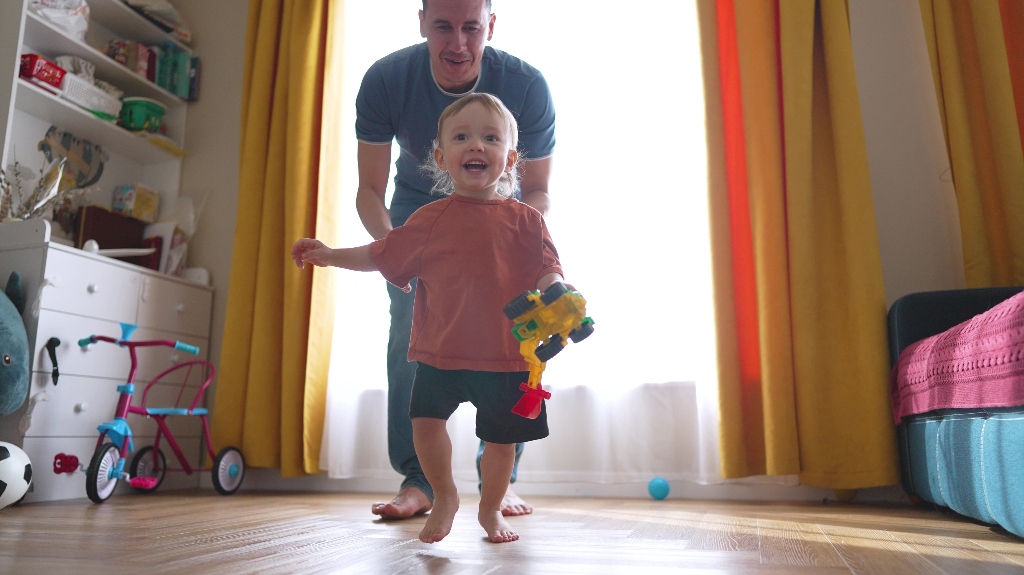What Rights Does a Father Have in North Carolina?
In custody situations, it’s important to recognize the significant role parents play in the lives of their children. Even in cases of divorce or separation, fathers still are entitled to be a part of their child’s life. As a father In North Carolina, you have various rights to ensure your involvement and interests as a parent. In this blog we will be going over the different rights fathers are entitled to as parents in North Carolina including custody, visitation, and child support.
Establishing Paternity
The first and most crucial step to obtaining rights in your child’s life is by establishing paternity. To have rights as a parent in North Carolina, you must legally be the child’s father. There are a few different ways you can gain legal paternity for your child:
- Marriage: If a child is born to a married couple, the law presumes that the husband is the child’s legal father Additionally, if you marry the mother after the birth you are able to legally be the father.
- Acknowledgment of Paternity: For unmarried parents, paternity can be established through an “Acknowledgment of Paternity”. This is a legal document signed by both the mother and the father, stating that the man is the biological father of the child. The AOP form is typically completed at the hospital after the child’s birth or at a later date. Once signed, the acknowledgment is filed with the North Carolina Vital Records office, and the father’s name is added to the child’s birth certificate.
- Court-Ordered Paternity: In cases where paternity is unknown, paternity can be established through a court order. The court may order genetic testing to determine biological fatherhood, which involves analyzing DNA samples from the child, the mother, and the alleged father. If the test confirms that the man is the biological father, the court can issue an order declaring paternity, granting the father legal rights and responsibilities.
Custody and Visitation Rights
Once paternity is established, the father has equal rights to child custody as the mother. As long as the court has no restrictions on your rights as a father, you are entitled to both legal and physical custody. Legal custody allows you to make decisions for your child such as decisions related to education, healthcare, and religion. Physical custody is where the child lives or spends time, this can be sole (where the child lives with one parent) or shared (where the child spends significant time with both parents). In deciding these types of custody, the court often decides the outcome after hearing arguments from each parent’s attorneys.
As for visitation rights, even if a father is not on the child’s birth certificate, they are entitled to visitation rights. Both parents are considered equal unless proved otherwise through abuse or any other unfit circumstances that could interfere.
Different types of visitation include:
- Scheduled Visitation: Set days and times when the non-custodial parent has the child, often outlined in a court order or parenting plan.
- Extended Visitation: Longer periods, such as during school vacations or holidays, may be arranged to allow for more significant time with the child.
- Supervised Visitation: In cases where there are concerns about safety or the parent’s ability to care for the child, visitation may be supervised by a third party.
Child Support
In North Carolina, it is expected that both parents provide for their children financially. Child support is typically paid by the non-custodial parent to the custodial parent, and it is meant to help cover essential costs for the child. Child support payments are generally determined using a formula that considers both parents’ incomes, the number of children, and the amount of time each child spends with each parent. The court may also factor in other elements, such as whether one parent covers health insurance or childcare costs. As a father, if you are a custodial parent, you are entitled to receive child support payments. If you believe you are entitled to child support payments and haven’t received any, you can file a claim with the North Carolina Division of Child Support Services.
Seeking Legal Assistance
If you have questions about your rights as a father or need help in a child custody case, do not hesitate to contact a North Carolina family law attorney. These legal considerations can be complex, and you want to ensure that your rights are protected throughout this process.
Seeking legal assistance is vital during this process. We are here to help you navigate through these challenging times. Contact us to set up an appointment or by calling us at 336-370-6760 today.
